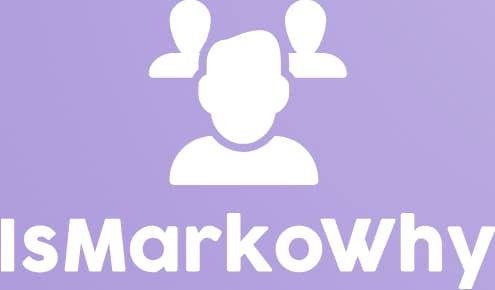Introduction — The Hidden Architecture Behind Every Great Paper
Every successful academic work begins with an idea — but turning that idea into a coherent, structured, and defensible paper is an entirely different challenge. Many students face obstacles such as unclear research questions, methodological confusion, and time pressure. This is where an Agentur Ghostwriter often becomes part of the academic process — not as a replacement for intellectual work, but as a mentor guiding the student through each critical phase.
Professional writing agencies offer not only technical expertise but also deep methodological support. They help students refine topics, design argument structures, and adhere to institutional standards. The process resembles scientific collaboration: structured, transparent, and focused on developing both the paper and the author.
From Concept to Research Framework — Building the Foundation
Defining the Research Question
At the beginning of every paper lies a simple but essential task — defining a question worth answering. Many students underestimate how challenging it is to formulate a clear and researchable topic. A professional ghostwriting agency assists in narrowing down broad interests into specific hypotheses that can be explored through literature and data.
Expert Insight:
Dr. Anna Weber, academic consultant, explains:
“The art of academic success starts long before writing. Defining a sound research question is the foundation. Without it, no structure or style can save the work.”
Literature Mapping and Topic Validation
Agencies employ academic databases such as JSTOR, Scopus, or Google Scholar to map existing research. They identify gaps, compare theoretical frameworks, and suggest original directions. This validation stage ensures that the topic meets current academic standards and contributes new insights.
Fact:
A 2023 survey by the German Academic Writing Association found that students who received structured topic guidance were 60% more likely to complete their research phase within the deadline.
Structuring the Argument — Creating Academic Logic
Once a research question is established, the next step is developing a logical framework. This involves building an outline, defining sections, and linking evidence to argumentation.
Outline as the Blueprint
A well-structured outline serves as the intellectual skeleton of any paper. Professional writers often use standardized structures like IMRAD (Introduction, Methods, Results, and Discussion) for empirical studies or thematic frameworks for theoretical ones.
Expert Comment:
Professor Lukas Brandt, editor of Scientific Writing Today, emphasizes:
“Without a structured argument, even strong data becomes meaningless. The outline is not bureaucracy — it’s the architecture of thought.”
Integrating Data and Citations
Academic work relies on transparency and precision in source usage. Ghostwriting experts ensure that every claim is backed by credible data and properly cited using the appropriate system — APA, Harvard, or Chicago.
The Writing Stage — From Draft to Coherent Argument
Writing is both a creative and analytical act. A Ghostwriter Agency assists in transforming fragmented notes into fluent, academically sound prose. Contrary to common misconceptions, this collaboration does not mean outsourcing intellectual work — it’s a process of refining and structuring the author’s ideas.
Language Precision and Style Consistency
Academic writing requires a balance between clarity and complexity. Professional ghostwriters ensure that the language meets disciplinary expectations while remaining accessible. For international students, this linguistic guidance often becomes the difference between confusion and comprehension.
Fact:
The European Academic Language Report (2022) notes that over half of multilingual students face difficulties maintaining a consistent academic tone in English-language papers.
Collaborative Authorship
Transparent agencies emphasize collaboration rather than substitution. They share drafts, invite feedback, and ensure the final text reflects the author’s voice and perspective. This approach, known as ethical ghostwriting, aligns with legitimate academic support frameworks used in professional publishing.
Revision and Editing — The Refinement Process
Editing transforms a draft into a coherent scholarly work. It includes structural review, argument validation, stylistic correction, and final proofreading.
Peer-Style Editing and Methodological Review
Top-tier ghostwriting agencies simulate peer-review conditions. Editors question weak assumptions, test the logic of arguments, and adjust the tone for academic consistency. This process mirrors what happens before journal publication — iterative refinement toward intellectual clarity.
Expert Comment:
Dr. Miriam Hoffmann, senior editor at Research Communication Quarterly, explains:
“The editing process is not cosmetic. It’s about deep revision — ensuring every paragraph contributes to the argument and every citation strengthens the claim.”
Formatting and Originality Checks
Formatting may seem minor but can affect evaluation. Agencies ensure compliance with institutional templates and citation styles. In addition, plagiarism detection through Turnitin or PlagScan confirms originality and transparency.
Ethics and Integrity — Redefining the Ghostwriter’s Role

Critics often associate ghostwriting with academic dishonesty. However, modern agencies work under clear ethical frameworks. The Ghostwriter Agency functions as a support system for learning and quality assurance, not as a producer of unearned results.
Fact:
The University of Hamburg Ethics Review (2021) found that structured writing assistance increased students’ understanding of research methodology by 72% when conducted transparently.
Educational Mentorship
Ethical agencies provide model texts, reference materials, and feedback that students can learn from. This mentoring helps develop transferable skills for future academic work.
Expert Insight:
Dr. Felix Mertens, pedagogy researcher, notes:
“Learning through guided writing is not unethical. It’s a pedagogical bridge between theoretical knowledge and practical execution.”
Finalization and Defense — The Academic Finish Line
Once the text is polished, the final step is preparing for submission and defense. Here, ghostwriting experts provide presentation coaching, helping students explain methodology and defend arguments under time pressure.
Confidence and Presentation Skills
Preparing for oral defense can be intimidating. Agencies train clients to summarize results effectively, anticipate examiner questions, and present data with confidence.
Building Future Academic Competence
Beyond one paper, collaboration develops long-term skills — critical thinking, structured reasoning, and clear communication. These abilities remain valuable long after graduation.
The Future of Ghostwriting — Where Human and AI Collaboration Meet
Technology is reshaping the writing process. AI-assisted research tools now support literature analysis, data synthesis, and citation management. However, the human expertise of experienced writers remains essential for ethical reasoning and interpretive depth.
Fact:
According to the European Writing Technology Report (2024), human-AI collaboration increased writing efficiency by up to 40%, but human oversight was crucial for maintaining academic quality.
Hybrid Academic Support
The future points toward hybrid models, where AI handles repetitive tasks and human experts provide conceptual and ethical guidance. This evolution strengthens the educational value of ghostwriting agencies, making them strategic partners in academic success.
Conclusion — The Invisible Partnership Behind Every Scholarly Success
An Agentur Ghostwriter does not simply write a paper; it builds a bridge between uncertainty and mastery. Through research guidance, structural mentoring, and linguistic precision, these agencies empower students to navigate the full academic process with confidence and clarity.
In essence, the agency serves as both a mentor and collaborator, ensuring that every academic journey — from idea to completed work — reflects intellectual honesty, discipline, and progress.
